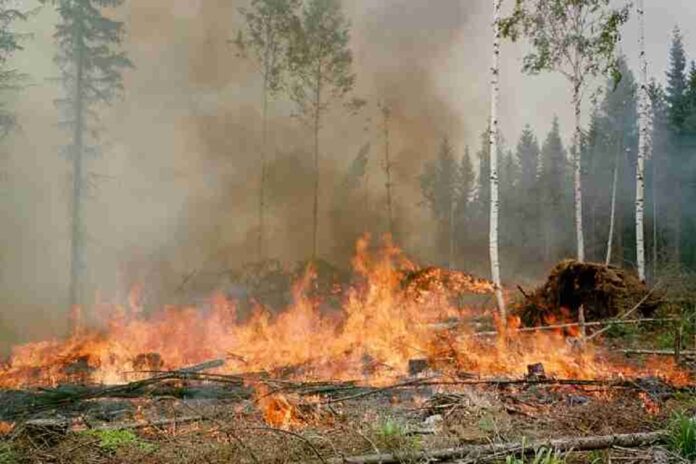Slash and burn is the practice where you clear a piece of farmland and set the residual vegetation on fire to burn and make the land easily accessible and convenient for planting and other farm activities. Farmers have used this technology for centuries and they still use it today.
In the phase of population increase, increasing demand for food and climate change there has to be a substitute for this technology and conservation agriculture comes as a better alternative.
Read also: No-till (Conservation) farming vs Conventional Tillage Agriculture
Slash and burn is not a good practice and farmers must do well to avoid it for the following reasons;
1. Burning leaves the land exposed to erosion
Burning vegetation residues after slashing exposes the soil surface to direct contact with rain. Exposed soil surface erode easily with rainfall impact leaving gullies on your field. Erosion takes away the fertile topsoil of your field. Moreso, you expose the soils and wind can easily erode them too.
Read also: 10 Benefits of Cover Crops to Soil Improvement and Cropping
2. It is not sustainable
Previously, when “slash and burn” was encouraged by farmers, they practised land rotation where after some time when the soil has lost its fertility. They leave the land and move to a fertile one while the previous regain its fertility. After burning the land severally, it takes between 10 to 25 years and sometimes even 40 years to regain its fertility. The practice of leaving the land fallow for that long is more difficult with the growing population and increasing demand for food.
3. Burning reduces organic matter content in soils
The vegetation residue on the soil creates a certain shade and helps keep moisture in the soil. This helps the activities of some very beneficial insects and organisms to improve the soil. They improve aeration in the soil. Their faeces are a major fertilization to the soil. The vegetation residue on decomposition fertilizes the soil. This adds to the organic matter content of the soil and helps the soil to retain moisture. Burning kills or drives these organisms away and eliminates all these benefits.
Read also: Soil Conservation: How to maintain Soil for Sustainable Crop Production
4. It is an extra cost to production
Burning becomes an additional activity in farming and therefore comes with a cost. When you do not burn, you reduce total cost of production and you save time too. Why not save energy, time, and money for a better practice?
5. Burning might cause bushfires
Uncontrolled burning on farms has been a major cause of bushfires spreading to destroy vast areas of forests, plantations and other properties in Ghana and across the globe. Farmers, annually are troubled with litigation concerning fires that burnt their farms or another’s farm. Slash and burn has been a major cause of deforestation worldwide. Avoiding burning of residual vegetation after slashing can save one from all these troubles while we protect our forest cover. It goes a long way to improving climatic conditions.
CONCLUSION
“Slash and burn” is not a sustainable practice.
Adopting sustainable agricultural technologies like no-till under conservation agriculture is a better substitute for slash and burn in our current climatic trends and food demands. It comes with very noticeable soil improvements.



Hello Afrane, I am Rev. Serugo Jehoiada Amooti in Uganda +256743141410 (WhatsApp). I have been reading your articles on sustainable farming. They are very good.
I am keenly interested in organic farming / Climate Smart Agriculture.
I would like to link up with you and be guided in this venture.
1. Where are you located?
2. May I get your WhatsApp telephone number / e-mail
Thanks and God bless you
Thank you, Rev. Serugo Jehoiada Amooti.
You can reach us on whatsapp on +233 59 858 5149
Additionally, I am new to the process and do not have any agriculture knowledge so, your expertise will be requested in many instances. thanks
Definitely, Torbor.
Let us know anytime you need our technical help. We would be so glad to share.
Thanks for the information, I just started planting cocoa fortunately, I started with conservation method though I heard many negative comments from friends regarding the method. The 3000 threes are grown faster then expected.
I am glad the results are contrary to what your friends said.
It should save you a lot of costs and also improve and protect your soil for the cocoa to grow well.
You did the right thing.
Thank you, Torbor.
What is the alternative practice to slash and burn in clearing land for farming?
The alternative is clear the land but do not burn. In other words, slash and do not burn.